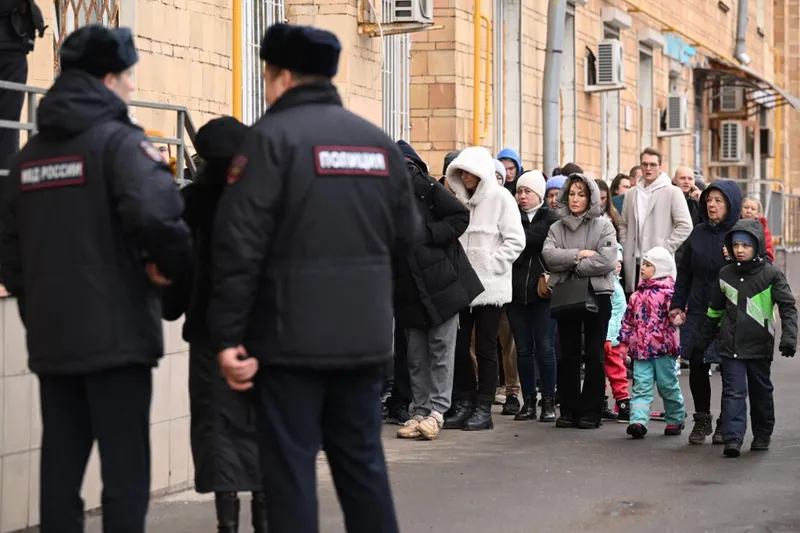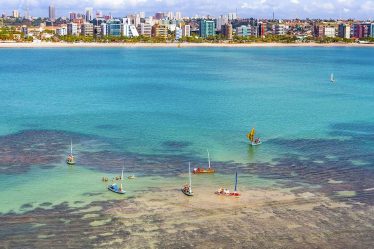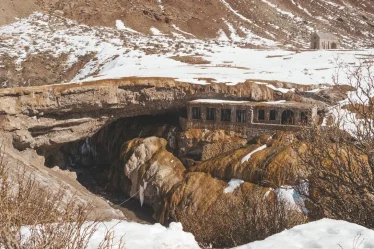
IGOR GIELOW
MOSCOW, RUSSIA (FOLHAPRESS)
The protest called by Alexei Navalni's allies against the certain re-election of Vladimir Putin as president this Sunday (17) managed to attract people in different parts of the country, but its very form of execution shows that the glass can be either half full or half empty to waning opposition in Russia.
The activist who died in jail last month had proposed that voters go to vote at 12pm (6am in Brasília) to create a “Noon against Putin”, filling polling stations. It was an ingenious solution to avoid arrests, since in Russia you cannot hold protests without authorization from the city hall, and certainly something coming from Navalni's team would never have one.
It's also smart from a media point of view, given that it's not possible to know whether everyone in line was there to vote normally or to complain about the reappointment of the president, who has been in the Kremlin since 1999. “It's the only way we have to express our opinion,” said Marina, 24, a fashion student and worker at a lingerie factory in Moscow.
She was in front of secondary school 1323, where a long queue formed in the courtyard and spilled onto the elegant Bolchaia Ordinka street, which on its northern horizon has Red Square. She didn't want to give her last name, but she allowed herself to be photographed opening her coat against the 20C cold.
“'That's what I mean,” he said, pointing to his T-shirt that says “I don't like you” in Cyrillic, but not Russian: it's a transliteration of the English phrase, a form of silent protest against Putin.
The young woman said she expected more people in line. The reason was evident: the Russian police put in place, at least in the four schools visited by the report between 11:30 am and 1:00 pm and in several others that emerged in images on social media, a strong plan to curb protests.
Police vans were parked in front of the voting stations – even helping to cover up part of the queue from potential photographers.
Under Russian law, invoked by the Moscow Prosecutor's Office to scare protesters, anyone who impedes the electoral process can face five years in prison. “We are silent, they can’t do anything,” said Marina, who voted for the illustrious liberal unknown Vladislav Davankov.
About 2 km away, at school 1259, the queue was forming at around 12pm when a police van arrived. Young people who were filming the movement put away their cell phones and disappeared down the side streets.
From the most favorable view of Putin's critics, there was in fact an increase in queues that cannot be scientifically verified, which will help social media to shout out the truth.
In the less comfortable and perhaps more realistic view, it was something quite timid – and the Kremlin could already celebrate the turnout at the polls, which already exceeded the 67.7% of the 2018 election.
The same Navalni, when alive, mobilized thousands of people through the internet, even though he never had the electoral stature to actually challenge Putin within the political system, in which he had started with a successful candidacy for mayor of Moscow, in which came second in 2012.
But the context now is one of greater repression of dissent in the country, largely due to the laws adopted against freedom of expression after the invasion of Ukraine in 20222.
The act has been successful, so far, in avoiding more serious incidents for the protesters. According to the human rights monitoring NGO OVD-Info, 20 arrests were recorded when young people refused to leave the queue in Kazan (800 km east of Moscow).
Images on social media showed more or less massive queues in other cities, particularly Saint Petersburg (700 km northwest of the capital). Outside of Russia, many people showed up to vote at noon in countries such as Armenia, Latvia and Kazakhstan, as well as European nations.
In Moldova, a person threw a Molotov cocktail at a Russian consulate. In Berlin, Navalni's widow, Iulia, participated in the protest.
One of the young people who left in front of school 1,259 didn't want to talk, but said in broken English that he “hates Putin” and stomped away. He could be inspired by the Latin saying Per Aspera Ad Astra (“through suffering, to the stars”), inscribed on the portico of the school, although at the moment for the Russian opposition there is only part of the difficulties, without the success at the end of the tunnel at hand. View.


